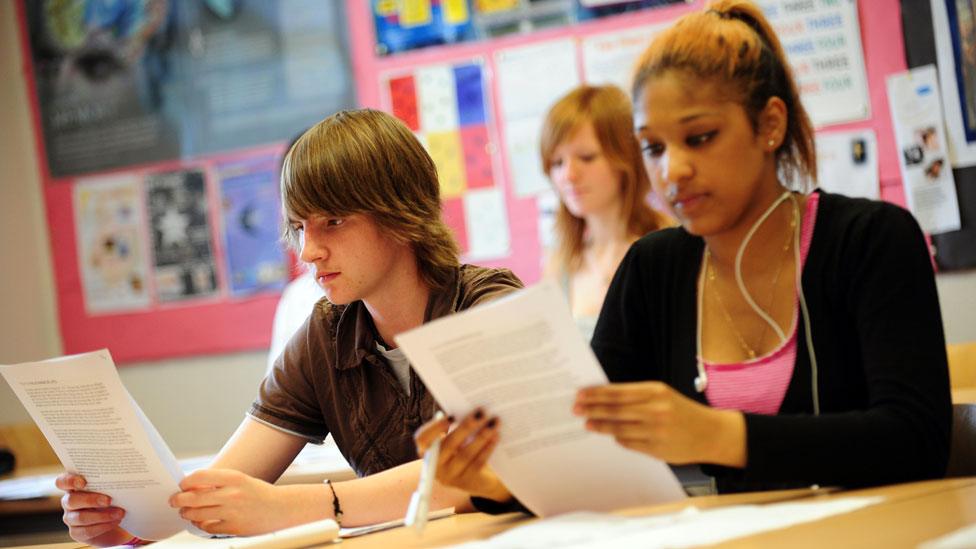Unis must stop unconditional offers in virus confusion
- Published
- comments

Universities in England have been told to stop making unconditional offers for the next two weeks, in a bid to tackle the confusion over applications during the coronavirus outbreak.
The higher education watchdog, the Office for Students, has warned against unfair pressure being put on students.
There are concerns universities are dropping exam requirements in a bid to push students to commit to courses.
Universities minister Michelle Donelan has backed demands for a pause.
The move is an attempt to stop any panicky decisions and to create some "stability" for students applying for university places, after the cancellation of A-levels and other exams which would have been used to decide admissions.
Nicola Dandridge, chief executive of the Office for Students, threatened universities with "any powers available to us" to stop such offers, which she said were "damaging to students".
The Department for Education says some universities appear to be switching offers which depended on getting A-level grades to unconditional offers, where students will get a place regardless of exam grades, or else significantly lowering the grades required.
This practice has been attacked by ministers as an unfair sales tactic which might make students choose a course not be in their best interests, particularly in the uncertainty caused by the coronavirus.

The exam results day is going to be different this year, with A-levels and GCSEs cancelled
In a bid to stop this becoming a stampede - with other universities thinking they will have to rush to get students too - a line-up of higher education bodies has put out warning statements, including the Office for Students, the Department for Education and Universities UK.
Ms Donelan says anxious students must not be forced into a "making a quick decision" and that a push for unconditional offers "risks destabilising the entire admissions system".
The two-week pause is intended to create breathing space while universities, exam boards, regulators and ministers try to work out how to handle this year's universities admissions, in the absence of conventional exam results.
There are plans to replace the exams with teacher assessments, taking into account previous exam results, coursework, mock exam results and teachers' predictions, with grades to be issued by the end of July.

Ms Dandridge said Ofqual, the exam regulator, is "rapidly developing a fair way of issuing A-level grades which should provide reassurance to students, and will also mean that there is no reason to rush decisions".
While this is in progress, she said universities "must stop making offers that are not in the best interests of students".
The calls were supported by Alistair Jarvis, chief executive of the universities' body, Universities UK.
"It is vital that the admissions process remains fair, consistent, and in the best interests of all students - who have a right for their work and performance to date to be fairly reflected," he said.
The universities admissions service, Ucas, is to tell applicants that the deadline in early May for making decisions on courses is going to be pushed back by two weeks to give students more time to consider.

A SIMPLE GUIDE: What are the symptoms?
AVOIDING CONTACT: Should I self-isolate?
LOOK-UP TOOL: Check cases in your area
MAPS AND CHARTS: Visual guide to the outbreak
